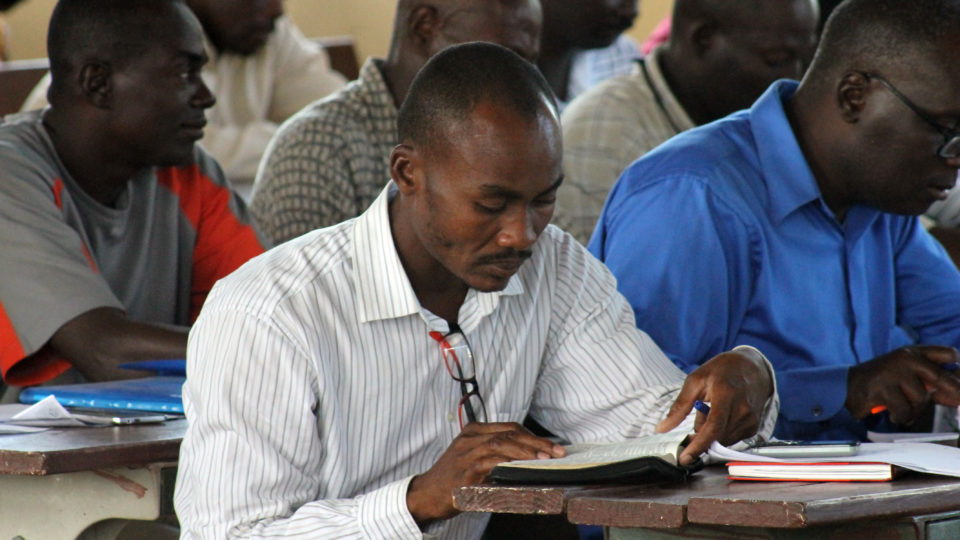Training Local Leaders

Training local church leaders is not an optional component of a missions strategy. It is a vital element that cannot be ignored. Simply put, missionaries who neglect to spend significant time developing local church leaders are adopting a short-sighted vision that will lead to long-term failure.
It’s Biblical
When you think of the apostle Paul’s ministry, you likely think of him boldly going into a city where Christ was not known and preaching the gospel, no matter what the consequence. For sure, there is a lot to learn from Paul’s zeal to preach the gospel, “not where Christ has already been named,” but this ambition for pioneer church planting was not the extent of the apostle’s ministry. An oft-forgotten mark of Paul’s missionary method was his return to locations for discipleship and strengthening. We can see this approach in Acts 14:21–23:
When they had preached the gospel to that city and had made many disciples, they returned to Lystra and to Iconium and to Antioch, strengthening the souls of the disciples, encouraging them to continue in the faith, and saying that through many tribulations we must enter the kingdom of God. And when they had appointed elders for them in every church, with prayer and fasting they committed them to the Lord in whom they had believed.
Notice that Paul returns to the areas where he has already ministered in order to encourage the believers and to help them establish faithful leaders who would shepherd the flock of Christ. Thus, a healthy missions strategy must include a component of encouraging and strengthening local churches and their leaders.
Training local church leaders is not only something we see described in Paul’s journeys; it’s also a practice that he prescribed. In one of his final letters, the apostle Paul gives his protege Timothy instructions for ministry. Second Timothy 2:2 says, “What you have heard from me in the presence of many witnesses entrust to faithful men who will be able to teach others also.” Paul’s parting words to Timothy—his son in the faith—are a command to reproduce what he has learned in order to equip future leaders who will continue to make disciples long after Paul’s ministry has come to a close. Investing in local church leaders is an investment in the generational health of that church.
It’s Strategic
Not only is training local church leaders a biblical idea, but it is also practically prudent for missionaries. Zealous missionaries may dream of laboring as lone soldiers, but it’s a foolhardy dream. Our efforts will be far more productive if we spend significant time developing local leaders.
Missionaries who desire to see healthy churches planted in cross-cultural contexts have all sorts of barriers to cross. There are language barriers, as well as cultural and religious barriers. A missionary can spend years and years learning how to overcome these barriers but may have to start over when planting in the next region or even in the next village. Therefore, it is often far more strategic to slow down and spend time training pastors and leaders who already know the language, already know the cultural landmines, and already have the trust of local citizens. This will create a group of leaders who are biblically, theologically, and practically equipped to multiply the work of gospel ministry in your context.
It’s Loving
Christ has called us to love others as he has loved us. What is more loving than equipping Christian leaders to faithfully shepherd their local church? Likewise, what is more unloving than having a wealth of theological training and not pouring into the global body of Christ?
The church is described in Acts as having a sacrificial generosity. While the focus of the text is on material generosity, it is not a stretch of the imagination to see that biblical training is a valuable resource that we can offer to meet a dire need of the global church.
But training local church leaders is not only loving towards the church leaders; it is loving towards the entire congregation. Wolves roam the earth, looking to infiltrate churches with a false gospel. If we hurriedly plant churches without giving attention to the development of local church leaders, we are inviting false teachers to creep in and deceive.
In the grand scheme of God’s redemptive plan that spans political borders and century markers, we play a small part. Our lives are a mist. Rather than building a kingdom of our own, training local leaders allows us to disciple and empower others to lead. It is the way we reflect the love and humility of Christ, and it is the way we faithfully entrust the gospel to the generations to come.
Want More Content Like This?
We will deliver Reaching & Teaching articles and podcast episodes automatically to your inbox. It's a great way to stay on top of the latest news and resources for international missions and pastoral training.
